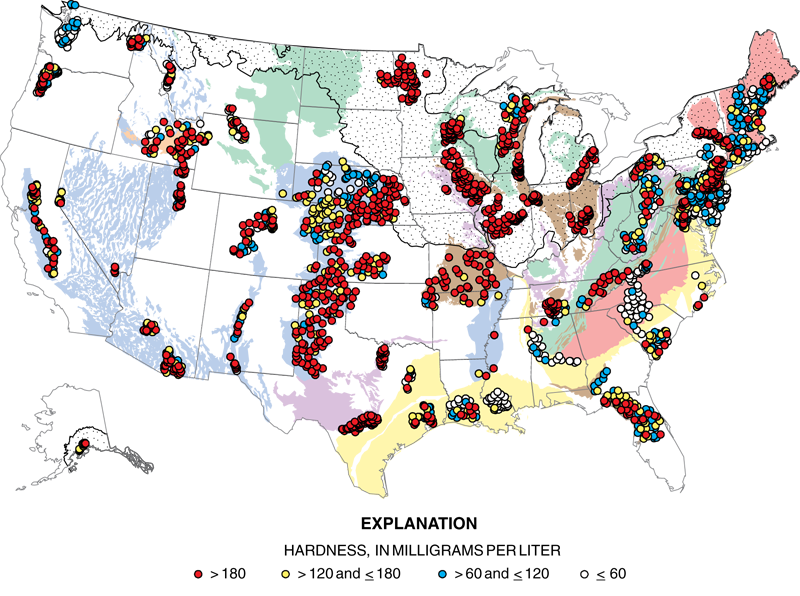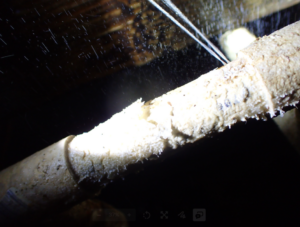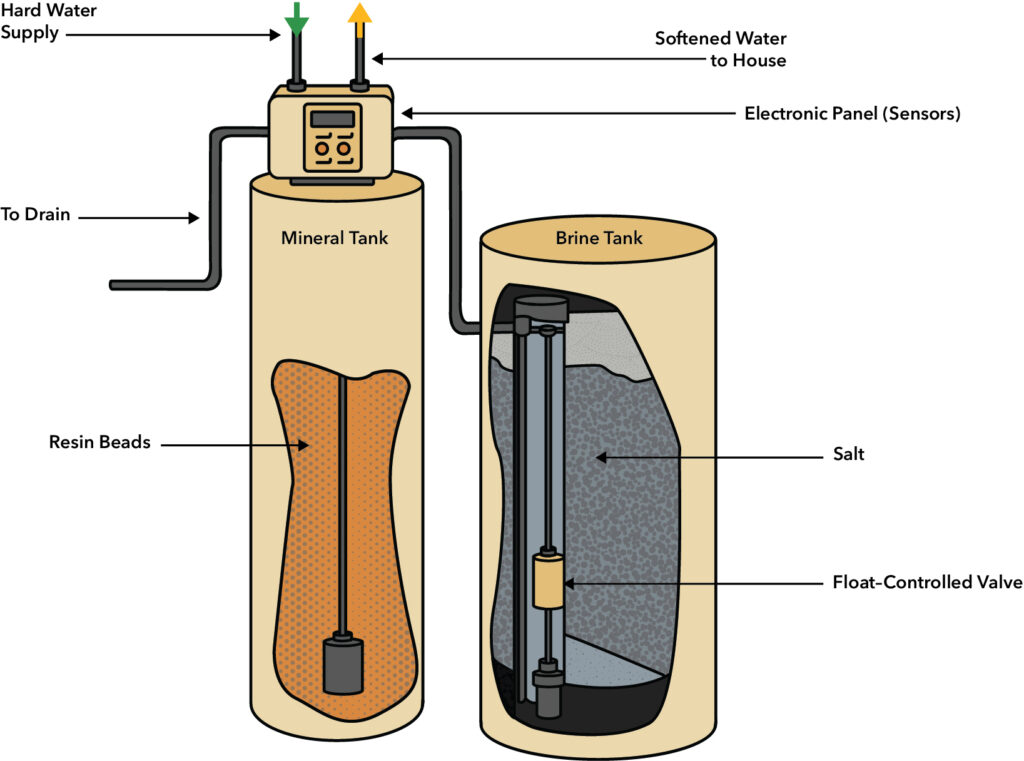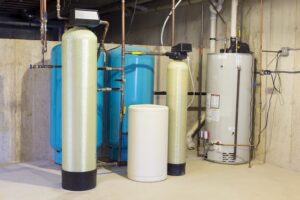Water Softeners: Function and the Significance of Failure in Claims
More than 85% of the United States has hard water, according to a United States Geological Survey (USGS) study. Over time, the minerals in hard water can build up in plumbing and appliances, limiting their functionality. Water softeners are often the best option for property owners to combat the effects of hard water, but when they fail to operate as designed, the consequences may spread to other equipment. Find out more about how water softeners work and the common causes of loss that lead to their inclusion – and that of other appliances – in claims.
The majority of water in the nation is hard, particularly in areas that rely upon well water, as seen above. More than 60 milligrams per liter is considered hard water and potentially damaging to plumbing systems and appliances. Image credit: United States Geological Survey
Effects of Hard Water
Hard water doesn’t generally pose a health risk, but it does have drawbacks that range from mildly inconvenient to potentially damaging. It can cause minerals, primarily calcium and magnesium, to build up in plumbing, water heaters, and other appliances.
The United States Department of Energy reports that in dishwashers, washing machines, and showers or baths, hard water reduces the cleaning capacity of soap and detergent because these products tend to lather and rinse better in soft water. Failure to do so may result in drier skin, water stains on dishes after a wash cycle, and a rougher feel to recently washed clothing.
More serious consequences of hard water occur when minerals build up in plumbing over time. Buildup reduces flow to taps and appliances and may lead to equipment failure if not addressed. This is why many homeowners opt for a water softener. Water softeners remove calcium, magnesium, and other minerals found in hard water.
Calcium buildup, seen here on the outside of a pipe due to a pinhole leak, slows the flow of water and reduces the efficiency of appliances throughout a home.
How Water Softeners Work
Water softeners are fairly simple machines with a valve, control board, transformer, and other sensors that vary by model. Dual-tank, salt-based water softeners are plumbed into a building’s water supply system to perform an ion exchange, a process in which the water softener trades damaging minerals for a brine solution within the main tank. The solution is stored in a separate brine tank within the water softener.
When hard water enters a structure’s plumbing system, it travels to the water softener. Inside the main tank, resin beads attract calcium, magnesium, and other minerals, removing them from the water before it continues through the house. The solution from the brine tank then flows through the main tank, cleaning the hard water minerals off the resin beads. These minerals are then flushed from the tank into a drain, allowing the cycle to repeat and deliver softened water.
Water softeners are relatively uncomplicated, but their failure can have far-reaching effects.
Water Softeners in Insurance Claims
Many water softener models have electronic controls that open and close a valve when more brine solution needs to be added to the main tank, and it is often these elements that are susceptible to commonly reported causes of loss. Inspectors familiar with water softeners often find that the digital metered control valve has failed due to high voltage surge, freezing damage, or water damage.
Though their operation is simpler than that of many appliances, expert assessment is important before resolving a claim involving a water softener. Apart from the three common causes of loss mentioned above, this equipment can also be affected by smoke and fire, wind, impact by foreign objects, and wear and tear. Some water softeners that are reported as damaged are, in fact, functioning as designed when inspected according to engineering best practices.
Expert analysis can provide answers crucial to an accurate settlement, not only because it can confirm damage but because claims that include water softeners often name other equipment as well. Hard water can affect the performance of appliances like dishwashers and washing machines due to mineral buildup on certain components, which can shorten the lifespan of these appliances.
Water heaters, too, can see corrosion from hard water within their tanks. Mineral deposits can fill up the tank and lead to reduced hot water capacity and accelerated tank failure if not maintained properly. In homes with hard water and no water softener, complex appliances like a tankless water heater are at high risk for failure without frequent maintenance.
The failure of a water softener to filter out hard minerals can shorten the life expectancy of other equipment, such as the water heater.
When a policyholder reports that their water softener isn’t operating as designed, it’s important for an expert to confirm the cause of loss and verify whether the failure impacted other items. StrikeCheck eliminates speculation and guesswork to help insurance professionals make better settlement
decisions. To get the benefit of streamlined and uncomplicated processes for assessing property claims involving electronics and other specialty electrical items, including water softeners, submit an assignment to StrikeCheck today.




